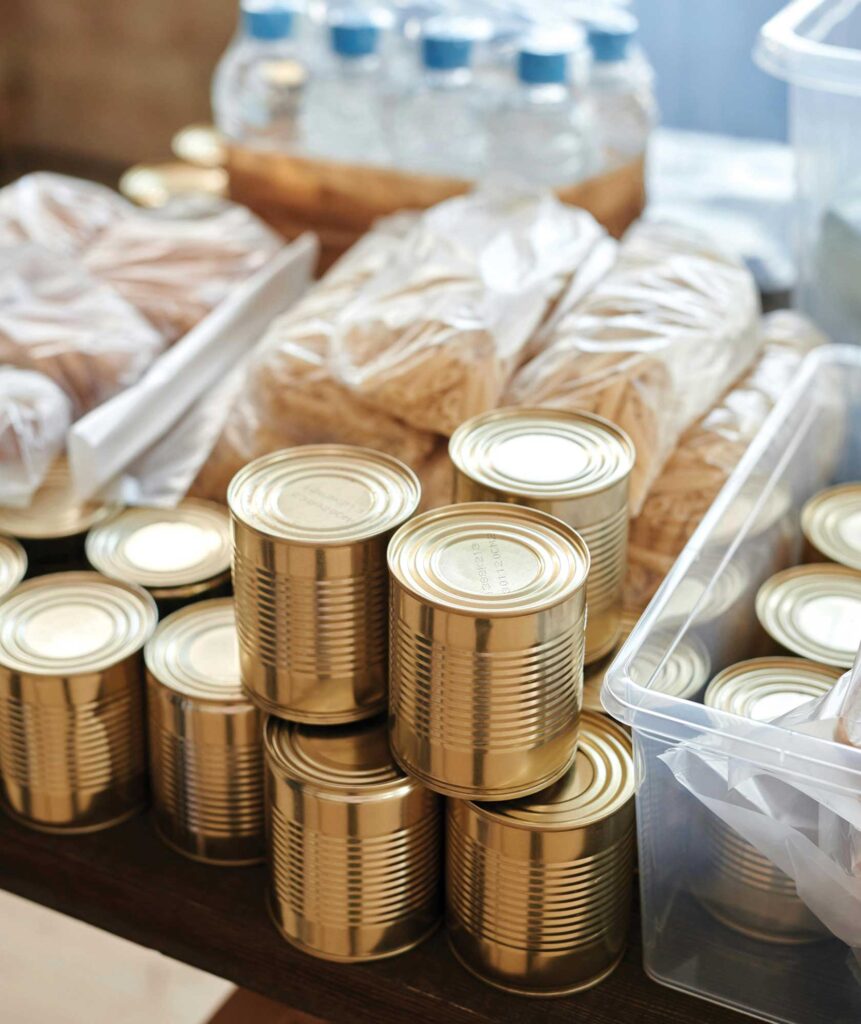Food distribution center opens in Roxbury to increase availability of fresh food

An initiative by Boston Mayor Michelle Wu, Mass General Brigham, and the YMCA of Greater Boston will turn a 27,000-square-foot warehouse in Roxbury into a food storage and distribution site.
Previously used as an Amazon fulfillment center, the facility on Northampton Street has 5,500 square feet of cold storage space and will aid the YMCA and other community organizations in their efforts to combat food insecurity and food waste in the city.
“When you’re in the hunger relief food security business, where the amount of space you have is a huge part of what you can take and what you can give out … just having more space allows us to do more at scale,” said David Shapiro, CEO of the YMCA of Greater Boston.
The city contributed $2 million in pandemic relief funds toward the “food hub” while Mass General Brigham said it would provide $3 million via its Community Health Impact Funds. The city also awarded $500,000 in grants to assist groups in increasing freezer and refrigeration space throughout Boston.
“By investing in cold-storage infrastructure and collaborative solutions, we’re building a stronger food system so every Boston resident has access to fresh, healthy, and culturally relevant food,” Wu said in a statement. She added that the collaboration creates “a sustainable model that connects surplus food to those who need it most while supporting local farmers and reducing waste. This is a victory for Boston families, our environment and our shared future.”
Dr. Elsie Taveras, chief community health and health equity officer for Mass General Brigham, said the partnership enables those involved “to support nutrition security, drive systemic change in food storage and delivery, and support local farmers and businesses.”
“Mass General Brigham’s investment reflects our commitment to improving equitable access to nutritious foods and promoting nutrition security, leading to better health outcomes,” she said.
The YMCA currently runs a food distribution center in East Boston, giving out 4,000 grocery bags of fresh produce and pantry goods each day to dozens of sites across the city. The partnership will see the organization move its operations from East Boston to Roxbury at the warehouse.
Shapiro said the new distribution center was “huge for us on so many levels” because it’s closer to the locations where the organization delivers food, which will remove access barriers and limit costs incurred by transport. With four times the storage as is available in the East Boston location, the Roxbury distribution center will allow the YMCA to expand its food allocation services and carry them out more efficiently.
The YMCA has long provided meals for students during the summer through its Boston Summer Eats program with the city. During the pandemic though, the organization accelerated its food distribution efforts after noticing a need and used several of its facilities to store food from the Greater Boston Food Bank and other community organizations. Soon, the organization moved the services to the warehouse in East Boston, a space donated in kind.
As the arrangement for the warehouse drew to a close, the organization began speaking with the city officials who expressed the need for scaled cold storage and food recovery efforts.
Without the necessary refrigeration space, many organizations and groups are unable to take advantage of all the food in the system. The Roxbury distribution center was the answer.
“Our ability to get fresh, nutritious, and culturally relevant food to people is entirely based on the infrastructure, like how well funded, how well coordinated, how good of facilities people have to turn around fresh produce and fresh protein,” he said.
With the space, the YMCA can store more food for longer helping to curb food insecurity. Last year, with the rising costs of living in the state, nearly 2 million Massachusetts adults were food insecure, according to a May report by the Greater Boston Food Bank.
The YMCA is among several Massachusetts organizations and coalitions working to combat hunger while simultaneously reducing food waste.
Shapiro said, “Good health is good medicine,” and fresh food should not be a barrier for those who need it most.
Not only does the bigger distribution space “reduce the economic burden” for community members, he said, but it also opens up opportunities for more partnerships with community organizations to boost food recovery and waste reduction operations and assist more people. Smaller organizations will also be able to use the space for storage.
In a statement, Brian Swett, the city’s chief climate officer and chief of the environment said the initiative was an example of “the intersection of environmental sustainability and social equity.”
“By expanding cold storage infrastructure and supporting food recovery efforts, we are reducing food waste, lowering emissions, and ensuring that fresh, nutritious food reaches every corner of our city,” he said. “The collaborative hub is a model for how Boston can tackle food insecurity and climate challenges simultaneously, creating a more resilient, equitable, and sustainable food system for all.”






